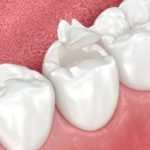To keep teeth and gums healthy, consistent dental visits are vital. When you visit for regular appointments, your dentist provides dental cleaning Lawrenceville to remove plaque, tartar, and surface staining, which will help reduce the chances of decay and gum disease. However, not every cleaning appointment is the same—if you are having dental concerns, your oral health may require a deep dental cleaning instead of a regular cleaning after a dental checkup. Knowing this long with your oral health can assist you in making decisions about your dental treatment.
What Is Regular Cleaning?
A regular cleaning, also known as prophylaxis cleaning, is recommended for patients with healthy gums and teeth. A dental hygienist will carry out the cleaning by removing plaque and tartar calculus above the gumline and polishing your teeth to remove surface stains.
These cleaning are preventive and usually done twice a year and to prevent cavities from developing and to catch early signs of gum disease. Cleanings also allow your dentist to see potential oral health problems early and to provide treatment quickly. Routine cleanings are typically quick and painless and are an important part of maintaining oral health.
When Is a Deep Cleaning Needed?
Deep, or periodontal, dental cleaning is recommended if the patient has been diagnosed with a gum infection like periodontitis.
At this stage, bacteria, plaque, and tartar on their teeth have gotten so severe that it’s affected the gum tissue and, in very poor cases, even the bone below their gums.
During a deep periodontal cleaning, the dentist or dental hygienist will thoroughly clean below the gumline while providing comfort, and possibly local anesthesia. It typically requires two or three visits. After the cleaning is completed, there will also need to be recommendations for specialized oral care procedures and follow up appointments for potential infections to make sure it doesn’t happen again.
Regular Cleaning vs Deep Cleaning- What Set Them Different.
- Extent of Cleaning: Typically, regular cleanings take place on the visible surfaces above the gumline, and deep cleanings involve work below the gumline and treatment of periodontal disease.
- Time Required: The ideal time for regular cleaning varies from 30-60 minutes, in most of the cases. Upon understanding the oral health condition, the dentist may extend the cleaning time.
- Anesthesia: Regular cleanings do not routinely utilize anesthesia, while deep cleanings often do to lessen discomfort.
- Follow-up Care: Deep cleaning usually employs rigorous home care instructions and follow-up appointments to monitor healing and gum health.
How to Decide Which Cleaning You Need
A dentist will determine which type of cleaning is warranted through an evaluation of your oral health. Their evaluation includes looking at the degree of plaque and tartar accumulation, the health of the gums, and a person’s likelihood of developing periodontal disease. Regular check-up visits also have an important role of allowing for early detection of complications so you do not have to resort to invasive treatment plans later.
If you are uncertain if you require a cleaning or a deep cleaning, the best first step is to visit a dentist near you, who you trust. Your oral health concerns will be assessed and communicated with a professional in order to advise you, prescribe cleaning, and preventive care.
Conclusion
You are happy when you take care of your teeth as it is a part of a healthy body. Routine cleaning, or deep dental cleaning – professional dental care will make sure that your smile is healthy and strong. Your appointment with Choice One Dental in Lawrenceville today will ensure that you maintain healthy teeth and gums in the future.






